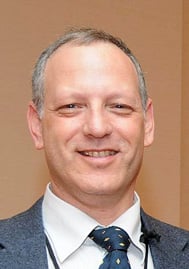Boaz Arad is a founder of and spokesman for the Israeli Freedom Movement, and the founder and publisher of the Israeli magazine and website Anochi, which is dedicated to the advancement of Objectivism. He has served on the editorial board at the Hebrew version of Business Week, authored a weekly column in the Israeli daily Makor Rishon, and worked as a research fellow at the Jerusalem Institute for Market Studies. His articles promoting individual liberty and economic freedom appear regularly in Israeli media. In addition to his activism, Mr. Arad works as a marketing and communications manager for international software companies. I recently spoke with him via Skype. —Craig Biddle

Craig Biddle: Thank you for joining me, Boaz—it’s great to hear your voice again!
Boaz Arad: Thank you, Craig. I appreciate the opportunity to speak with you.
CB: Let’s dive right into the Israeli Freedom Movement. What is this organization, and how did it begin?
BA: It’s an effort to expand political and economic freedom in Israel, much like the better goals of the Tea Party in the United States.
It began as a combination of the activism of about five guys. Each of us was already working in some capacity toward smaller government, lower taxation, and more freedom in Israel. I was already heading the promotion of Ayn Rand’s writing and philosophy in Israel, an effort I began in 1985. And I was publishing a newsletter and website (www.Anochi.com) that present some of Ayn Rand’s nonfiction writings in Hebrew, as well as commentaries and criticism on art, politics, and current events. Another one of the five is a lawyer who specializes in international tax law. Another is an engineer. But all of us were already actively advocating individual freedom and free markets.
We got together in June of 2011 in response to various political and economic events in Israel, including popular protests against the high cost of living, the high cost of dairy products, and the high cost of housing. We wanted to take advantage of the public focus on economic issues and form a body of activism to educate people about the requirements of free markets.
The Israeli version of the Occupy Wall Street movement occupied Rothschild Boulevard in Tel Aviv with tents, demonstrations, discussions, and so on. These protests garnered a lot of media support, so we decided to get into the action and present a new perspective on the problems in question. We did essentially what Peter Schiff did when he went to Wall Street to discuss issues with the demonstrators, and what Alex Epstein did at other “Occupy” events. We began doing this kind of thing in Israel in July 2011, and we got significant media attention.
So we decided to form what we call in Hebrew “the new Liberal movement”—liberal, of course, from the root concept “liberty.” In English, we prefer to call it “the Israeli freedom movement” since the word “liberal” has been corrupted in America. We are basically a parallel to the American Tea Party movement.
CB: What’s your general positive message? What do you say in advocacy of freedom?
BA: We agree with the protestors in Israel that the cost of living is very high. But whereas others usually present more of the same illness as a medicine, we present the actual solution to the problem. They call for more government intervention, but we’re able to point out to the media and the Israeli public that whenever we see a problem in the market, behind it there is usually some kind of government intervention, regulations, or restrictions that actually caused the problem.
We offer a simple, logical solution, similar to Alexander’s cutting of the Gordian Knot. We advocate lifting and abolishing restrictions rather than the usual bureaucratic tendency to add more regulations that create more problems.
CB: How large is the movement, and who are your allies?
BA: Last time we talked, it was about five hundred people; right now we’re at about six hundred people. This increase is in just a few days. So we are growing rapidly and gaining more and more support. Wherever we present our position on specific issues, people with good sense realize that we are actually fighting for them. . . .


![[TEST] The Objective Standard](https://test.theobjectivestandard.com/wp-content/uploads/2017/10/logo.png)











